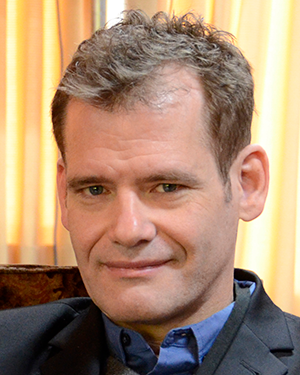Dr. John Dune (University of Wisconsin-Madison) is a researcher for the SMV-funded research project “Self and Desire as Seeds of Virtue: A Buddhist-Inspired Multi-Method Investigation.” His collaborators include co-PI, Dr. Paul Condon (Northeastern University), co-PI Christy Wilson-Mendenhall (Northeastern University) and other researchers.

Meet Our Researchers – John Dunne

JOHN DUNNE (PhD 1999, Harvard University) holds the Distinguished Chair in Contemplative Humanities, a newly endowed position created through the Center for Healthy Minds at the University of Wisconsin–Madison. He also holds a co-appointment in the new Department of Asian Languages & Cultures. John Dunne’s work focuses on Buddhist philosophy and contemplative practice, especially in dialog with Cognitive Science and Psychology. His publications appear in venues ranging across both the Humanities and the Sciences, and they include works on Buddhist philosophy, contemplative practice and their interpretation within scientific contexts. His current research focuses especially on meta-awareness, compassion, and in both theoretical and practical terms.
In 2000, during my first stint on the faculty at the University of Wisconsin–Madison, one of my undergraduate students introduced me to the neuroscientist Richard J. Davidson. Richie and I immediately discovered that we had a number of friends and acquaintances in common, and as Richie learned more about my work in Buddhist epistemology, he asked me to assist him with a new project: an intensive empirical study of long-term Tibetan meditators. Working back then with Richie and our collaborator Antoine Lutz, I learned that my previous work on Buddhist theories of mind, perception, and concept formation not only made sense to these scientists—that work also turned out to be highly useful for understanding and empirically examining the specific practices that were the focus of that study. I also discovered that the empirical examination of contemplative practices greatly enhanced my understanding of Buddhist philosophical issues, and it also enabled my research to move beyond the disciplinary boundaries that were its initial frame.
In more recent years, two especially important styles of contemplative practice have caught my attention. The first style is broadly known as mindfulness, and in this area, my work has focused especially on understanding mindfulness in its many varieties but also in terms of its specific mechanisms. One key mechanism is the notion of “dereification,” which amounts simply to the capacity to experience one’s thoughts just as thoughts, and not as real representations of the world.
Along with mindfulness, another contemplative style has become an ever more central part of my research: compassion. Some of that interest comes from my work with the Mind and Life Institute, which has put me in frequent contact with His Holiness the Dalai Lama. For His Holiness, compassion is a key component of well-being, and it is a fundamental human capacity that can be enhanced through contemplative training. An especially important and intriguing aspect of compassion is the way that it enhances social connectivity and reduces self-centeredness. In this sense, compassion may be a baseline component for many practices in multiple traditions, since an enhanced sense of a highly embedded and “open” sense of self seems essential in so many contemplative contexts.
Christy Wilson-Mendenhall and I were part of the Collaborative for Contemplative Studies at Emory University, and for several years we participated in a vibrant community engaged in the empirical study of contemplative practices from a transdisciplinary perspective. We both also worked with our outstanding colleague Larry Barsalou (now at Glasgow), and it is through Larry that I first met Lisa Barrett at Northeastern University. On a trip with Larry to visit Lisa’s lab and present some of our work, I then had a chance to reconnect with Paul Condon, whom I had met through the Mind and Life Institute previously. Christy, Paul, and I began to discuss a number of issues, and we were well prepared to formulate our proposal when the Self, Motivation and Virtue project gave us the opportunity.
Much of my research concerns the capacity to train and enhance the human mind in a way that contributes to greater human flourishing. And for many contemplative traditions, humans already have all the ingredients for flourishing, and practice thus seeks to enhance and develop natural capacities, rather than create new abilities. This all raises a crucial question: where are individuals starting from? In other words, what are the individual differences “at baseline,” and do these differences help us to understand why some people are flourishing even without relying on any practices for enhancement?
One of the most exciting aspects of our project is its potential to answer some of these questions in the especially rich context of romantic relationships. Inspired by a Buddhist model, we understand compassion and wisdom to be key ingredients for flourishing, and we conceptualize each in ways appropriate to dyadic relationships. Wisdom, for example, we understand in terms especially of the capacity for dereification mentioned above, such that we examine a person’s ability to let go of their “story” about their romantic partner and engage with that person in a fresh and open way. Examining these issues not only has the potential to challenge some assumptions in the science of relationships; it also has the potential to reconceptualize the notion of “individual” flourishing itself.
